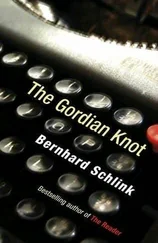‘And how does this new smog alarm model work?’ I looked at Oelmüller invitingly.
Ostenteich didn’t relinquish his lead quite so easily. ‘It’s good that you enquire about the technical side of things, too, Herr Self. Herr Oelmüller can explain all that to you in a minute. The crux, l’essence, of our problem is: the state and the economy only have a mutually beneficial arrangement if a certain distance prevails between the two. And, please allow me this rather bold metaphor: here the state has overstepped itself and groped the décolleté of the economy.’ He roared with laughter, and Oelmüller dutifully joined in.
When quiet had again descended, or, as the French would say, silence , Oelmüller said, ‘Technically the whole thing isn’t a problem at all. The basic process of environmental protection is the examination of the vehicles of emissions – water, or air – to check the concentration of harmful substances. If an emission exceeds the accepted levels, one attempts to trace its source and shut it off. So, smog may be created if some factory or other emits more than their allowance. On the other hand, smog may also be created if the level of the emissions at the individual factories remains within the stated limits, but the weather cannot cope.’
‘How does whoever’s in charge of the smog alarm know what sort of smog he’s dealing with? He surely has to react quite differently to each.’ The business was beginning to enthrall me. I postponed my next trip to the buffet, and shuffled a cigarette out of the yellow packet.
‘Correct, Herr Self, indeed both sorts require a different reaction, but they’re difficult to tell apart using conventional methods. It’s possible, for example, that traffic has to be stopped and factories have to grind to a halt because a single coal power station that drastically oversteps its accepted emission level can’t be identified and stopped in time. What makes the new model irresistible is that, theoretically at least, problems like the one you raised can be avoided. Via sensors, emissions are measured where they originate and transmitted to the Regional Computing Centre that consequently always knows where which emissions are occurring. Not only that, the RCC feeds the emissions data into a simulation of the local weather expected in the next twenty-four hours – we call it a meteorograph – and the smog can be to a certain extent anticipated. An early-warning system that doesn’t look as good in practice as it sounds in theory because, quite simply, meteorology is still in its infancy.’
‘How do you view yesterday’s incident in this respect? Did the model prove its worth?’
‘The model worked all right yesterday.’ Oelmüller tugged the end of his beard, contemplatively.
‘No, no, Herr Self, here I must expand upon the technicians’ perspective to present the broader picture. In the old days, quite simply, absolutely nothing would have happened. Yesterday instead we had chaos with all the loudspeaker announcements, police controls, curfews. And to what purpose? The cloud dispersed, without any assistance from environmentalists. Yesterday’s event just fanned the flames of fear and destroyed trust and damaged the image of the RCW – tant de bruit pour une omelette. I think this is the very case to make clear to the Federal Constitutional Court how disproportionate the new law is.’
‘Our chemists are checking whether yesterday’s counts really justified the smog alarm,’ Oelmüller inserted. ‘They immediately began to evaluate the emissions data, which we also record in our MBI, management and business information, system.’
‘At least they deigned to grant the industry online access to the state emissions analysis,’ Ostenteich interjected.
‘Do you consider it possible, Herr Oelmüller, that the accident and the incidents in the computer system are in some way connected?’
‘I’ve thought about it. Here practically all production processes are controlled electronically, and there are multiple links between the process computers and the MBI system. Manipulations via the MBI system – I can’t completely discount it, in spite of all the built-in security measures. Regarding yesterday’s accident, however, I don’t know enough to say whether a suspicion in that direction makes sense. If so, I would hate to think what could be in store for us.’
Ostenteich’s interpretation of yesterday’s accident had almost made me forget my arm was still in a sling. I raised my glass to the gentlemen and made my way over to the buffet. With a loin of lamb in its herb crust on my pre-warmed plate, I was steering my way to Firner’s table when Schmalz came up to me.
‘May my wife and I invite the doctor to coffee?’ Schmalz had evidently dug out my title and gladly adopted it to neutralize another sibilant.
‘That’s extremely kind of you, Herr Schmalz,’ I thanked him. ‘But I’ll hope you’ll understand that until the end of this case, my time is not my own.’
‘Oh, well, another time, maybe.’ Schmalz looked downcast, but understood the Works came first.
I looked around for Firner and found him on his way to his table with a plate from the buffet.
He stood still for a moment. ‘Greetings, have you found out anything?’ He held his plate awkwardly at chest level to hide a red-wine stain on his dinner shirt.
‘Yes,’ I said simply. ‘And you?’
‘What’s that supposed to mean, Herr Self?’
‘Let’s imagine there’s a blackmailer who wants to demonstrate his superiority, first of all by manipulating the MBI system and then by creating a gas explosion. Then he demands ten million from the RCW. Who in the company would be the first person to get that demand on his desk?’
‘Korten. Because he’s the only one who could decide about sums of that size.’ He frowned and glanced instinctively at the slightly raised table where Korten was sitting with the head of the Chinese delegation, the president, and other heavyweights. I waited in vain for an appeasing remark like ‘But Herr Self, whatever are you thinking?’ He lowered his plate. The red-wine stain did its bit to reveal a tense and uncertain Firner beneath the veneer of relaxed serenity. As though I were no longer there, he took a few steps towards the open window, lost in thought. Then he pulled himself together, rearranged the plate in front of his chest, nodded curtly at me and moved in a determined fashion to his table. I went to the toilet.
‘Well, my dear Self, making progress?’ Korten arrived at the next stall and fumbled with his fly.
‘Do you mean with the case or the prostate?’
He peed and laughed. Laughed louder and louder and had to put a hand out on the tiles to support himself, and then it came back to me, too. We’d stood next to each other like this before, in the urinals at the Friedrich Wilhelm. It had been planned as a preparatory measure for playing hookey, and then, when the teacher noticed we were missing, Bechtel was to stand up and say, ‘Korten and Self were feeling sick and went to the lavatory – I can go in quickly and check how they are.’ But the teacher checked on us himself, found us there having a great time, and, as a punishment, left us standing there for the rest of the lesson, supervised by the janitor.
‘Professor Barfeld with the monocle will be here any minute,’ snorted Korten. ‘Barfing Barfer, here comes Barfing Barfeld.’
I remembered the nickname, and we stood there, trousers open, clapping each other on the shoulder. Tears sprang to my eyes and my belly hurt from all the laughing.
Back then things almost took a nasty turn. Barfeld reported us to the headmaster and I had already imagined my father raging and my mother weeping and the scholarship evaporating into thin air. But Korten took it all on his shoulders: he had been the instigator and I’d just joined in. So he got the letter home, and his father only laughed.
Читать дальше












